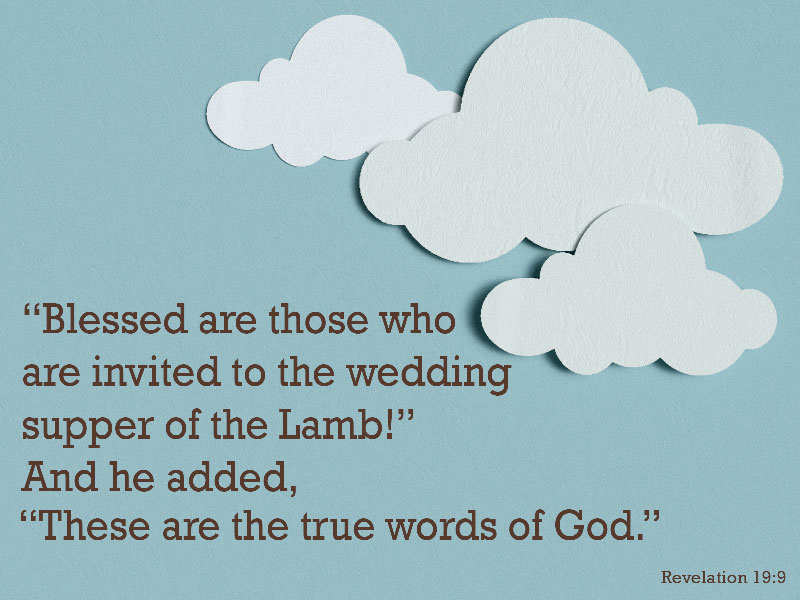Reflections on Bible readings for 3rd Sunday of Epiphany
Revelation 19:6-10 & John 2:1-11
By Canon Janice Ward
Officiating at a marriage ceremony is one of the great joys of priestly ministry. Our Gospel reading today is referred to in part of the Anglican Church marriage liturgy and the same verses are often chosen by couples as their Bible reading.
Marriage has significant symbolic importance beyond bonding human relationships together. For Christians it symbolises the intimate and permanent bond between Jesus Christ and each individual believer, who collectively form the Church. In the Old Testament marriage was an image for the relationship between God and the people of Israel. There are many references to marriage in the Gospels (e.g., Matthew 22:2, Mark 2:19 & John 3:29) and from St Paul (Ephesians 5:21-23).
Marriage, whether a human relationship or a symbolic divine one, encompasses four qualities that make a unique and special bond: love, intimacy, joy and fidelity. Relationships that are founded upon love tend to be the ones that have the depth and power to overcome the test of time and changing circumstances. These relationships are only formed when each partner knows the other well, fleeting or casual relationships may include physical intimacy, but emotional and spiritual union grows with commitment, two becoming one. This bonded relationship can then bring great joy, the knowledge that someone else shares your life with all its celebrations and commiserations. But for a relationship of this magnitude to last requires faithfulness born of trust. As I tell prospective wedding couples, marriage is a great gift but one that requires continual effort!
God continually puts effort into our salvation by the repeated forgiveness we receive through Jesus Christ. This offer of salvation is held out to us throughout our lives in the divine hope that we will accept it-God never forces anything upon us, love can never be imposed or it is not love. In the verses from Revelation the vast numbers of the redeemed glorify God for their salvation. The love of Jesus, revealed through his death and resurrection, will unite the faithful with Christ in a joyous eternal relationship to be celebrated in heaven. Almighty God overcame the forces of evil, to save His people- those who believe and trust in the Son. The divine bridegroom will be united with the Church. These verses glorify God for what has already happened and are in anticipation of what is yet to come.
In the exceptional circumstances of life today we can be tempted to look for ‘quick fixes’, someone or something that will give certainty instead of doubt, clarity instead of confusion, direction instead of a maze of possible dead-end pathways. We want answers and we want them now, instant solutions to a multitude of problems. God’s answer to all questions in every situation has always been the same ‘I am’ with the unspoken imperative attached to ‘trust me’. God, frustratingly perhaps, seldom offers explanations or timescales!
We human beings are encouragingly invited to be in a marriage like relationship with God, worshipping and praising our all-powerful creator, for all our past blessings whilst looking trustingly and hopefully to future promises. There are no ‘get-out’ clauses in our liturgies, ‘we praise you, God, that you have delivered us from the powers of darkness-so long as you keep doing so and keep us safe, happy, healthy & wealthy’! Instead, we look around us to see the present blessings that we might have missed and trust God to take us to a more wondrous future. Such a relationship requires persistent and consistent communication and presence, just like a marriage. The good news is that when our efforts flag and tire to maintain this relationship we can rely upon God to keep it going for us, remember the wine didn’t run out but it did get better…

